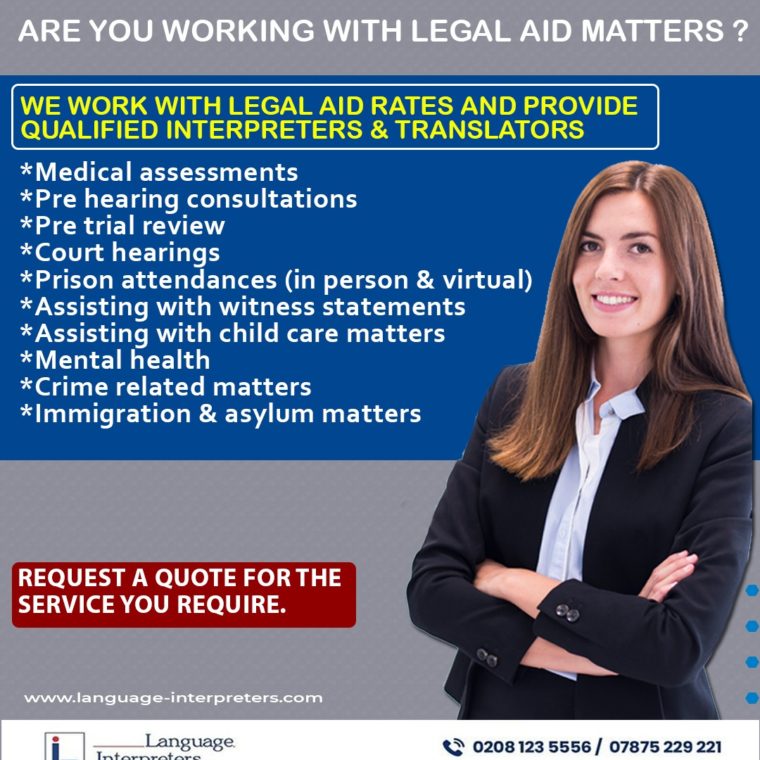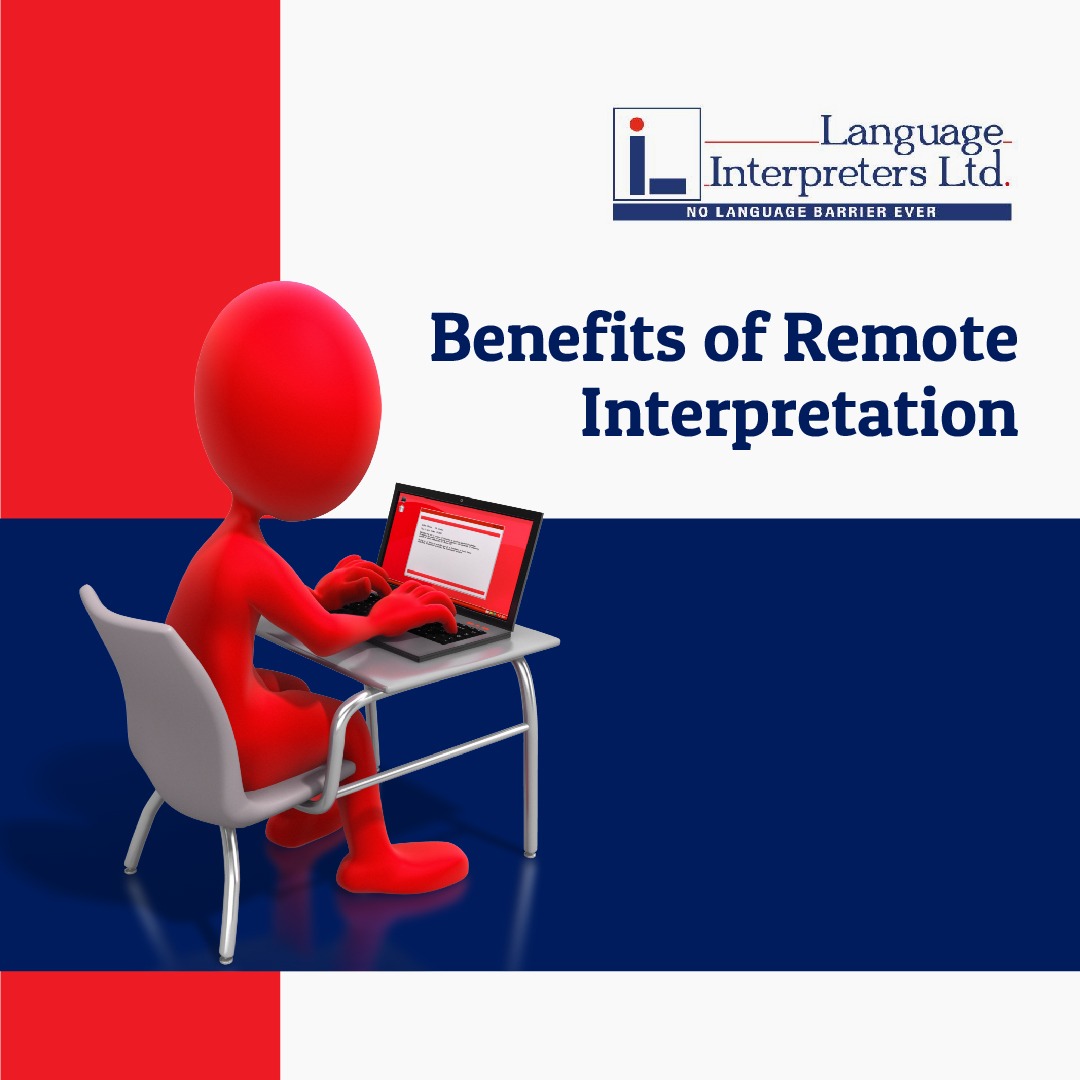Solicitors, social workers, caseworkers, judges, police, and other legal professionals are always in need of a fluent language Interpreters who can assist in bringing the case to its close and achieving the right outcome. An interpreter who understands the legal terminology and procedure can put the non-English speaking client at ease.
The client could be a minor or a vulnerable adult who may not understand the terms or processes that they would need to follow to achieve their goal. The language interpreters and the solicitor are those individuals who could be the answer to the client’s difficulties. When they both work hand in glove they can achieve great results for the client.
To achieve a successful outcome in any legal procedure the role of a qualified interpreter plays a vital part when language is a barrier.
A good interpreter should have the following qualities:
- language proficiency,
- a professional demeanour,
- an awareness of the legal process,
- importance of impartiality and secrecy,
- and to interpret precisely only what is asked and responded in accordance.
Legal Aid Interpreters are qualified language interpreters who have formal qualifications as per the legal aid agency regulations and who can assist with cases where a provision of assistance called Legal Aid has been granted by the Legal Aid Agency to a person who would otherwise not be able to afford legal representation or have access to judicial procedures.
All advisors or solicitors should, if necessary, use professional interpreters to overcome any language difficulties. It’s better to use organisations that provide such services and who work with legal aid rates.
Solicitors and Language Interpreters assisting in Legal Aid matters.
To assist with legal aid work, the law firm must be regulated by the Solicitors Regulation Authority (SRA) or the Office of the Immigration Services Commissioner (OISC).
Immigration and Asylum Accreditation Scheme (IAAS) run by the Law Society accredits all legal advisors and solicitors and all legal aid matters must be handled by them. All Legal Aid Agency which comes under the Ministry of Justice grants an appropriate legal aid contract to their establishments.
Legal aid is money received from the government to help people who cannot afford to pay for a lawyer. Legal aid legal work is carried out by the law firms that must have a legal aid contract with the government’s Legal Aid Agency. Although their work will be paid for by the government, legal aid solicitors and lawyers do not work for the government.
There are three types of legal aid:
- Legal Help,
- Controlled Legal Representation, and
- Licensed work (sometimes called ‘certificated work’).
Legal Help is available for applications for instance to asylum claims to the Home Office.
Any appeals for instance asylum claims against Home Office immigration decisions before the First-tier and Upper Tribunals are available through Controlled Legal Representation.
Licensed work is for applications for permission to appeal to the Upper Tribunal, for seeking judicial review of Home Office decisions where there is no right of appeal and for appeals to the Court of Appeal and UK Supreme Court.
Finding the right advisor or Solicitor
It is not a good idea to use a solicitor simply because they have been recommended by friends, family, or by interpreters.
Immigration and Asylum Accreditation Scheme (IAAS) run by the Law Society accredits all legal advisors. Legal Aid Agency which comes under the Ministry of Justice grants an appropriate legal aid contract to their establishments.
Points to bear in mind when choosing a solicitor.
- Has the solicitor got or applied for all the relevant papers in your case
- Are you advised about the law, processes, and merits of your case in writing?
- Has the solicitor spent sufficient time with you so that you can fully explain to them your background and life? This should generally happen over several meetings.
- Have you been provided with a professional interpreter in the appropriate language?
- Do you feel you had been provided with an opportunity to go through the statement process to ensure it is accurate and includes all the information that is relevant to your case?
- Has the solicitor got hold of your medical records?
- Do you trust your advisor sufficiently to discuss things that have happened to you that you feel ashamed or embarrassed about?
- Is a detailed statement prepared to lay out the facts of your case?
- Has the statement been read back to you in your language that you can understand, with an opportunity for you to correct any errors or add further details?
- Has any discussion taken place in advising you of additional information that may be available to support your case?
- Have you been advised about possible remedies if your application has been refused?
Experienced advisers in asylum and immigration spend a lot of time and effort adding value to the client’s case. They also care very much about the outcome for their client.
The solicitor must arrange for a suitable language interpreter who can speak and assist in the mother tongue of the client. It could be to attend a consultation, an assessment, a hearing or take a witness statement from the client. Any of these services could be assisted by government funding if the client is legally aided.
This process of a legal aid matter requires prior authorisation for all the services that could be required for the client’s process. It could be vital as producing documents and recorded pieces of evidence that require translation from the client’s native language into English or explaining written legal procedures that could be translated into the client’s language for understanding.
These services of interpretation, translation and transcription could be a key to the client’s successful legal outcome.
Contact Language Interpreters for all your client needs on 0208 123 5556 or email info@language-interpreters.com
We work with legal aid rates and provide qualified interpreters for interpretation, translation and transcription services.




